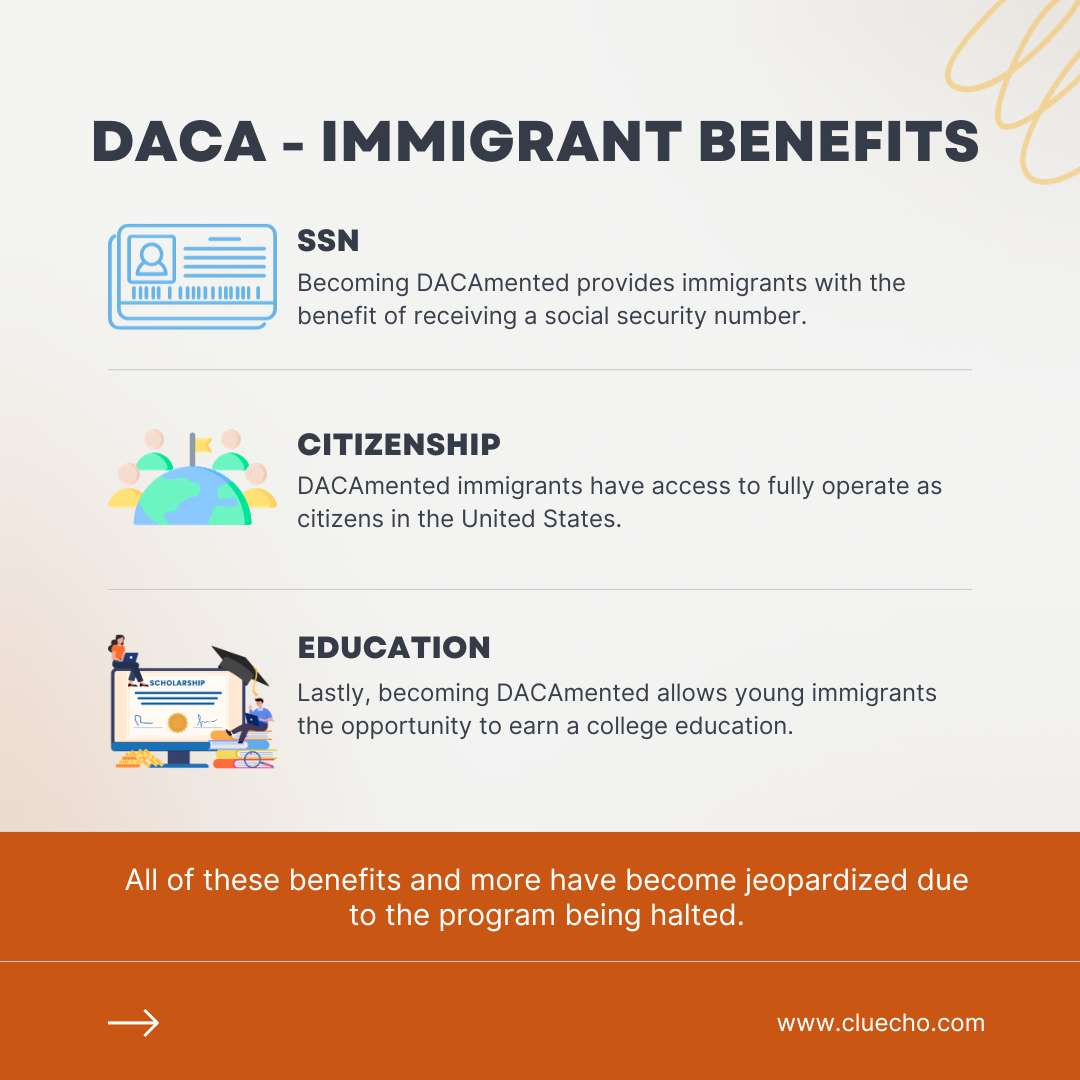Last month, U.S. District Judge Andrew Hanen ruled the Deferred Action for Childhood Arrivals policy, which provided a safety net for young and undocumented immigrants living in the United States, as unlawful.
“The decision in September, earlier this month, it wasn’t totally unexpected, right. It’s not a surprise but it is really disappointing,” Professor of Ethnic and Race Studies Lorena Muñoz said.
Dean of Undergraduate Admission and Outreach, Falone Serna, said being “DACAmented” can bring students benefits such as providing them with a social security number, access to operate as United States citizens, and the opportunity to be a student in college.
While applications are still being received, they are not being processed, and Muñoz said the decision leaves many undocumented immigrants grappling with uncertainty. In addition, it further marginalizes undocumented students and impacts families who have mixed status, Muñoz said.
“It’s difficult for the family members who do not have access to DACA. It’s difficult for the members who do have DACA. And it’s difficult for the members who are, you know, U.S. citizens or have residency, and they all live in the same household,” Muñoz said. “And I understand that because, in my family, basically, I was the only one U.S. citizen, so I do come from a mixed-status family and I was aware of that since I was little.”
Sarah García, associate director of Student Life, said in an email interview that there have been numerous studies establishing how stress surrounding students’ legal status negatively impacts their well-being.
According to Serna, many institutions treat their undocumented students as international students when it comes to admissions and scholarships, and undocumented students do not qualify for federal financial aid, just like international students. This is because they are unable to complete the Free Application for Federal Student Aid form as they need a social security number.
The California Grant is a financial aid program that the state provides to support students’ education regardless of their immigration status, and the California Dream Act Application allows students to apply for California grants.
Serna said the application gives the university information on a student’s financial background and the ability to award them institutional funds to help support their education. Out-of-state undocumented students, Serna said, cannot fill out the CADAA application since they are not California residents.
This is why, he said, there was an in-house application for out-of-state students created. Serna said the out-of-state application lets the university know the economic background of the applicant, allowing them to review and later award out-of-state students with institutional funds to support their education.
According to Serna, Cal Lutheran will continue to provide resources to all undocumented applicants despite the halt on the DACA program. Serna said he has worked for five different institutions and Cal Lutheran is the most generous for undocumented students.
“Just like any other students, they deserve to have higher education, they deserve to be successful and we will continue fighting with them,” Serna said. “It’s not really changing much for us because the program has actually been [in] suspense for new students for, I think, for a couple years now.”
Serna said undocumented students are still able to use a CADAA application or Cal Lutheran’s in-house application to be considered for institutional need-based aid. If a student is a DACA recipient, they are able to get a renewal, and are not affected by this at the moment.
Faculty and staff at Cal Lutheran are working on making the university a safer place for undocumented students, Muñoz said. She said there are faculty members who are trained to empathize and understand the situation of these students, and that they have been successful with professors and in making classes a safer and healthier environment for students.
However, Muñoz said it will be harder for undocumented students to achieve their higher education due to the DACA program’s halt. She said this decision has barriers that make it harder for immigrants and people of color, but overcoming them is not impossible.
“Continue to pursue your education and life goals. Your intelligence, brilliance, and leadership are desperately needed in this world,” García said.
According to an article from the Associated Press, Hanen’s ruling is expected to be appealed to the Supreme Court.












